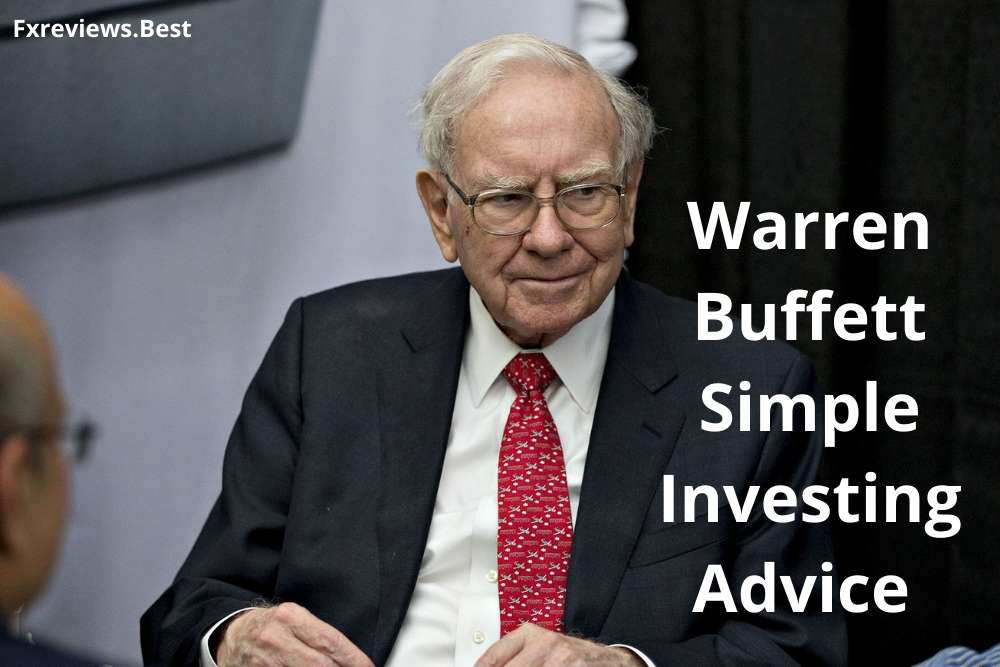You can earn money in the long term through a chunk of Warren Buffett’s simple investing advice. Warren Buffett is hailed as one of the greatest investors of all time, and his business Berkshire Hathaway has acquired a multibillion-dollar fortune. But Buffett isn’t only a terrific investor; he’s also a tremendous wit, and he loves to share his witty advice with other investors.
His counsel covers a wide range of themes, not only investing but life in general. But today, let’s focus on Buffett’s counsel, which could help you become wealthy. The surprising thing is that Buffett’s advice appears to be so commonsense and practical, yet it can lead to enormous wealth.
Here are our top 10 picks from Buffett’s investing wisdom.
Top 10 Picks from Warren Buffett Simple Investing Advice
1. Never Lose Money
Buffett’s thesis here appears simple, yet it’s deceptively nuanced. Of course, as an investor, you want to make money, but one of the best ways to do so is to prevent losing money. When you remove the decisions that put your portfolio at risk of losing money, what’s left is more likely to be profitable. You can compound your returns even faster if you have more money in your portfolio.
This method has ramifications for your investment strategy. According to Buffett’s comment, instead of seeking the most significant upside, you should focus on avoiding losses first and then looking for profits. Investors who regard the stock market as a slot machine have a distinct perspective.
Warren Buffett values cash highly and keeps a large amount on hand at all times. What is the explanation for this? According to Warren Buffett, he keeps a large amount of cash on hand so that we can both tolerate exceptional losses and capture acquisition or investment possibilities swiftly.
That is sound personal economic advice. Of course, you should always keep an emergency fund on hand in case something unexpected happens, but you should also retain cash in your brokerage account so you may buy stuff on the cheap.
For example, if you had cash on hand when the financial crisis struck, you could have bought low and sold high, collecting tremendous gains on your investment.
However, if you had put everything into investments, you would have lost a lot of money.
2. Seize the Opportunities
Buffett says you should act immediately and aggressively when you identify an opportunity. When the odds are in your favor, such as when stock prices are down dramatically, you should invest aggressively because good deals may not come up again anytime soon.
When markets are down significantly, Buffett frequently adopts this strategy. He accumulates a large sum of money during the good times, which he subsequently invests aggressively when the stock market plummets. He may utilize this method since he has a lot of safe cash on hand.
Diversification is a fantastic strategy for stock market investment, according to many good investors. Warren Buffett, on the other hand, is a skeptic of the concept.
According to Warren Buffett, diversification is for people who don’t know anything about investing. Instead, long-term equities should be chosen by a seasoned investor who is confident in their choices.
3. Monitor your behavior
While some investors believe that investing is only about numbers, Buffett believes that it is also about the behavior of investors. When investors become greedy and drive stock prices to new highs, Buffett becomes concerned that a market crash is imminent.
When investors flee the market or a particular stock, on the other hand, Buffett gets more interested since prices are lower.
Less expensive stocks do not carry the same risk as those that are more expensive. And this is how Warren Buffett views avoiding losses.
Concerns about the coronavirus sent the stock market plunging in early 2020. Despite the panic, some investors rushed into the market, and the market soared from its lows.
4. Do not ignore Blue Chip stocks
While some value investors focus on merely buying the cheapest companies, Buffett believes that purchasing blue-chip stocks, those with more robust economics and competitive advantages, is a better strategy. Part of the problem is that, while good companies may go on sale fairly frequently, great companies rarely appear to be bargains.
A corporation with a strong competitive advantage, on the other hand, will almost certainly continue to make money over time, and it will be able to save you if you buy at an exorbitant price. Unfortunately, that may not be the case for a trustworthy business, which may falter and never return to your original purchase price or higher.
In a similar vein, Buffett has long been a buyer of Bank of America, a bank with a national presence and an enviable deposit franchise. It is the second-largest holding in Berkshire Hathaway’s portfolio as of the third quarter of 2020 after Buffett added more than $1.7 billion at the end of July.
5. Tame your temperament
Again, Buffett emphasizes the need for temperament over intelligence for a successful investment. Rather than trying to follow or go against the herd, investors should look at what’s going on in the market, irrespective of who likes certain stocks. By concentrating on objective facts, investors can make less emotional decisions and make wiser selections.
“Be fearful when others are greedy, and greedy when others are fearful” is one of Buffett’s most famous quotes. Unfortunately, our stock market and investing system exemplify this amazing sentiment.
In the end, you should avoid the stocks that everyone else is buying because they are most likely overvalued. Instead, hunt for stocks that few people are aware of, examine their fundamentals, and decide whether or not to invest if it makes sense.
6. Wait for the right opportunity
You don’t have to invest until you find an opportunity that appeals to you and fulfills your criteria for possible compensation for the risk you’re taking.
Buffett advises investors to hold off on making a decision until they uncover an opportunity that is unlikely to result in a loss of capital. You are not obligated to invest in a stock that you do not find appealing.
This is one of Warren Buffett’s most significant investment advice. People invest their hard-earned money just because they have heard nice things about a company from others. Knowing the firm might help you predict whether or not there will be any linked economic troubles in the future.
There are numerous companies on the stock market whose operations may be comprehended by the average person. Buffett advises against investing in companies you don’t fully understand.
7. Importance of Index Funds
Buffett has long urged most investors to invest in the market using index funds rather than picking individual stocks. By choosing particular stocks, you’re competing with professionals who have considerable company knowledge. If you prefer an index fund centered on the Standard & Poor’s 500 indexes, on the other hand, you’ll own the market, which is the benchmark that everyone strives to surpass.
If you prefer investing, go ahead and do it; nevertheless, most investors would be better served by using an index fund and avoiding trading in and out of stocks. Another benefit of index funds is that they provide rapid diversification, which reduces risk.
Finally, Warren Buffett is a true long-term investor. He maintains his positions for a long time and continuously reminds his fans of this. In fact, he has stated that he prefers to buy and hold for the rest of his life. And it’s true because he’s held several of his positions for more than 20 years, which is an eternity in the world of investing.
He has also stated that this does not imply that a firm should be held if the fundamentals have altered. However, Buffett monitors his portfolio frequently, and if a firm loses its competitive advantage or dominance, he sells or reduces its holding.
He is also a firm believer in the virtue of patience. Basically, instead of trading, you should invest. Look for firms you like and wait for the best deal. Buffett is reported to have a list of hundreds of firms in which he wants to invest but is waiting for the perfect price and time.
He embarked on a buying binge during the Great Recession when stock prices plummeted. He was able to snag deals and lock in low pricing, resulting in excellent profits in the years to come.
8. Think like an owner
Warren Buffett always states that thinking like an owner affects your perspective on stock investing. For example, according to Warren Buffett, if you are going to buy a new vehicle or bike, you will consider its fair value, features and compare it to cars/bikes supplied by other manufacturers in the same market.
After that, you’ll determine which one to buy after going over everything. Stocks, on the other hand, should have the same attitude.
9. Prefer Quality Stocks
Many people buy stocks because they are inexpensive, but they don’t realize that cheap isn’t always better. When compared to investing in a fairly priced stock, the chances of losing money in cheap stocks are highly significant.
10. Keep your Emotions Aside
Some people aren’t supposed to hold stocks at all because price fluctuations irritate them. You shouldn’t possess stock at all if you’re going to do foolish stuff because your inventory is going down. Some people aren’t emotionally or psychologically ready for their own stock. Still, Buffett believes that if people were more informed about what they’re buying, which is a company, more people would be.
Bottom line
While Warren Buffett may be one of the most successful investors of all time, many investors can learn from his method, even if they don’t want to spend a lot of time in the market. If you focus on applying Buffett’s concepts, you, too, may become wealthy or significantly enhance your net worth.
It would be good to apply Buffett’s wisdom to your investment portfolio. You can practice the above strategies and build your portfolio with the help of a favorable trading environment provided by the leading financial service provider and broker PrimeFin.



